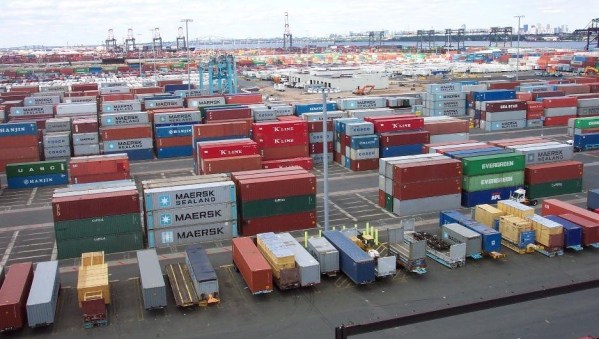The Nigerian Ports Authority (NPA) has stated that deliberate measures and investments are being undertaken to create a fully digital ecosystem in all the country’s port locations by 2025.
The Acting Managing Director of NPA, Mr Mohammed Bello-Koko, disclosed this in a statement signed by Mr Ibrahim Nasiru, Assistant General Manager Corporate and Strategic Communications, NPA, on Saturday in Lagos.
According to the statement, Bello-Koko made this known while giving a presentation on NPA’s ‘Digitalisation Roadmap and Current Information and Communications Technology (ICT) Implementation Status’.
The statement said the presentation was made at the 41st Ports Management Association of West and Central Africa (PMAWCA) Annual Council Meeting and 16th Round-table Conference of Managing Directors of PMAWCA, in Douala Cameroon.

Bello-Koko informed the delegates that a lot of work had gone into the smart port transformation agenda of the authority, aimed at enthronement of a paperless, time-saving and cost-efficient port operations.
The NPA’s helmsman who was represented by the Executive Director, Engineering and Technical Services, Prof. Idris Abubakar, disclosed that NPA first deployed a mainframe computer system in 1975.
The exercise was to to improve its payroll management, billing, statistical and accounting systems.
“From 1992, the deployment of personal computers was done at each port location to ease data management, and information sharing which was difficult as there was no connectivity between the ports.
“In 2011, the authority reviewed its ICT strategy in line with its new role as landlord, following the concession of port terminals in 2006.
“The primary focus of the new strategy is on enterprise computing and heavy dependence on network infrastructure, along with a centralised and shared database,” he said.
Bello-Koko noted that the adoption by NPA of a phased ICT deployment was geared towards achieving a fully integrated port operating system.
He said that it would foster relationship with all internal and external stakeholders, streamline NPA’s internal business processes; make use of high-end smart technologies, and record, monitor and utilise data for better decision making.